 |
|
| |
| Over 0.2 Million Children To Be Administered Polio Drops |
| |
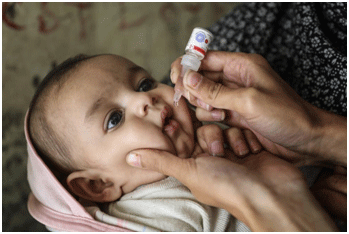 Continuing its efforts to eradicate polio, the district administration will start a five-day anti-polio drive from January 16, 2023, during which over 0.2 million children below the age of five would be given their first polio dose. The drive would continue till January 20, and that about 267, 276 children were targeted to be inoculated with polio drops in the first phase. Continuing its efforts to eradicate polio, the district administration will start a five-day anti-polio drive from January 16, 2023, during which over 0.2 million children below the age of five would be given their first polio dose. The drive would continue till January 20, and that about 267, 276 children were targeted to be inoculated with polio drops in the first phase.
|
| |
|
|
| Pakistan Flood Situation |
| |
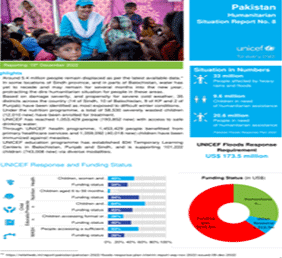 Around 5.4 million people remain displaced as per the latest available data.* In some locations of Sindh province, and in parts of Balochistan, water has yet to recede and may remain for several months into the new year, protracting the dire humanitarian situation for people in these areas.
Based on damage severity, and propensity for severe cold weather, 35 districts across the country (14 of Sindh, 10 of Balochistan, 9 of KP and 2 of Punjab) have been identified as most exposed to difficult winter conditions.
33 million People affected by heavy rains and floods, 9.6 million Children in need of humanitarian assistance, 20.6 million People in need of humanitarian assistance. Around 5.4 million people remain displaced as per the latest available data.* In some locations of Sindh province, and in parts of Balochistan, water has yet to recede and may remain for several months into the new year, protracting the dire humanitarian situation for people in these areas.
Based on damage severity, and propensity for severe cold weather, 35 districts across the country (14 of Sindh, 10 of Balochistan, 9 of KP and 2 of Punjab) have been identified as most exposed to difficult winter conditions.
33 million People affected by heavy rains and floods, 9.6 million Children in need of humanitarian assistance, 20.6 million People in need of humanitarian assistance.
(https://reliefweb.int/report/pakistan/unicef-pakistan-humanitarian-situation-report-no-8-floods-15-december-2022)
|
|
| |
| Human Rights Appreciation Award |
| |
 In recognition of work around human rights, SPARC's Kashif Mirza received award from Governor Punjab. In recognition of work around human rights, SPARC's Kashif Mirza received award from Governor Punjab.
|
|
| |
| Interactive session with social media influencers and journalists |
| |
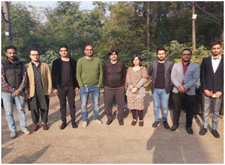 SPARC held an interactive session with social media influencers and journalists on the importance of Ban on Sale and Advertisement of Emerging Tobacco Products in Pakistan in order to secure the future of Pakistani children and youth. SPARC held an interactive session with social media influencers and journalists on the importance of Ban on Sale and Advertisement of Emerging Tobacco Products in Pakistan in order to secure the future of Pakistani children and youth. |
|
| |
| Sewing Machine Distribution in Machar Colony Karachi |
| |
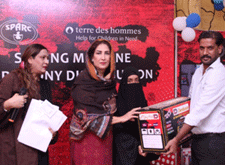 Syeda Shehla Raza Minister for Women Development Sindh distributed Sewing Machines among graduates of SPARC's Vocational Training Center at Machar Colony to provide skilled females of Machar Colony an opportunity to become successful entrepreneurs Syeda Shehla Raza Minister for Women Development Sindh distributed Sewing Machines among graduates of SPARC's Vocational Training Center at Machar Colony to provide skilled females of Machar Colony an opportunity to become successful entrepreneurs
|
|
|
|
| |
| Climate crisis is a child rights crisis |
| |
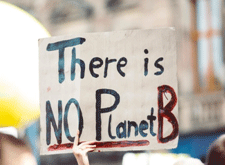 About a year ago, 12-year-old Asaad was enjoying being able to go to school and play with friends again in Sudan, following months of uncertainty brought on by the COVID-19 pandemic. But he did not have long before the next crisis hit. Heavy rains and extreme flooding washed away his home and inundated his neighbourhood, forcing his family and many others to flee. Asaad, now 13, is among at least 10 million children in the world who have been displaced as a result of climate change. His story shows firsthand how the climate crisis is a child rights crisis. About a year ago, 12-year-old Asaad was enjoying being able to go to school and play with friends again in Sudan, following months of uncertainty brought on by the COVID-19 pandemic. But he did not have long before the next crisis hit. Heavy rains and extreme flooding washed away his home and inundated his neighbourhood, forcing his family and many others to flee. Asaad, now 13, is among at least 10 million children in the world who have been displaced as a result of climate change. His story shows firsthand how the climate crisis is a child rights crisis.
The year 2023 marks the halfway point of the Sustainable Development Goals (SDGs) agreed upon in New York seven years ago. This moment seems a good one to reflect on where we are. Children are still bearing the brunt of the world's ills, which they have done nothing to contribute to. The world took one step out of the COVID-19 pandemic and its fallout that saw an unprecedented economic downturn and reversal of historic gains in healthcare and education, only to hurtle into the worst global cost of living crisis in a generation. Children should have emerged from the stress of the pandemic to a safety net that would help them survive, learn and be protected. Instead, they tell us they are unable to go to school, play with their friends, or eat enough to keep them going. In a ground-breaking survey of more than 54,000 children we carried out earlier this year, 83 percent of children in 15 countries said they see the climate crisis or inequality, or both, affecting their surroundings, while 73 percent of children believe adults should be doing more to address these issues. Data collected for the same report shows that one-third of the world's children – an estimated 774 million – are living with the dual effects of poverty and high climate risk, meanwhile, the number of children living in countries with the deadliest conflicts increased by 10 percent this year, according to another Save the Children report. The UN's Global Humanitarian Overview for 2023 finds that one in every 23 people will need humanitarian assistance to survive next year. This is a staggering 24 percent increase from a year ago, and we know that it is children who are the most affected by humanitarian crises.
. |
| |
| Children face an 'epidemic of violence' in schools |
| |
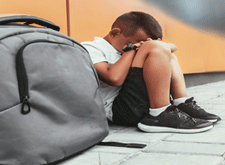 Schools can be dangerous places. Corporal punishment is still legal in more than 60 countries, students worldwide report sexual harassment and abuse by teachers, and violent bullying is rife. Schools can be dangerous places. Corporal punishment is still legal in more than 60 countries, students worldwide report sexual harassment and abuse by teachers, and violent bullying is rife.
Shockingly, the United Nations estimates that 246 million girls and boys experience violence in and around schools every year.
Yet flick through major global education announcements, including the readout from the recent U.N. Transforming Education Summit, and violence in schools barely gets a mention. Instead, most of the focus is on boosting enrollment and basic numeracy and literacy skills. While that's laudable, it's redundant if children don't feel safe at school.
The consequences of ignoring school safety are dire. Research shows that experiencing physical and psychological violence as a child has fundamentally negative consequences for mental and physical health and for educational outcomes. World Bank estimates $11 trillion in future earnings are lost globally due to violence in and around schools. |
|
|
|
|
|
|
|
| |
| |
| |
Our mailing address is: |
Follow SPARC on social media |
| |
House # 98, Street # 05, MPCHS, E-11/1, Islamabad
info@sparcpk.org | Tel # 051-2163011 |
|
|
|
|
|
| |
|